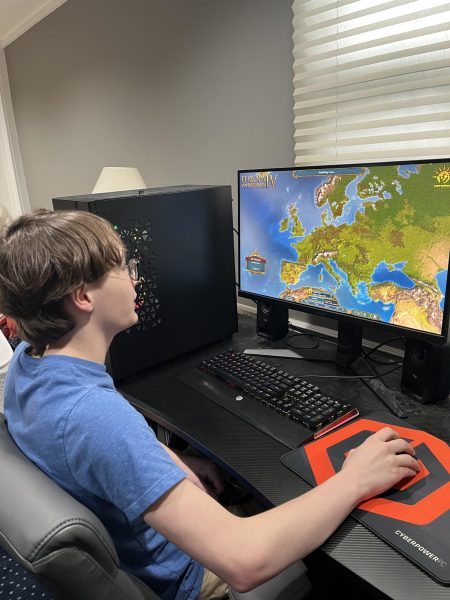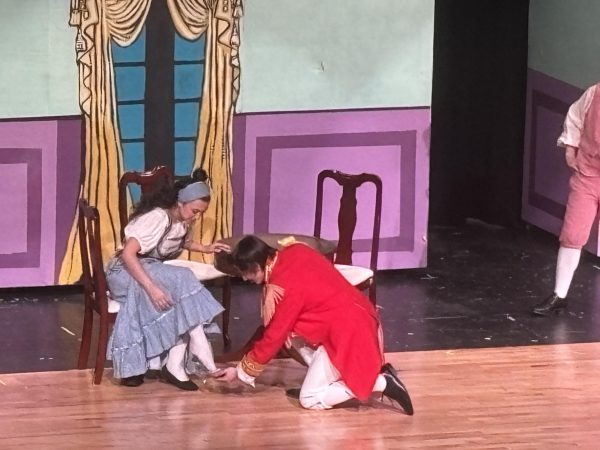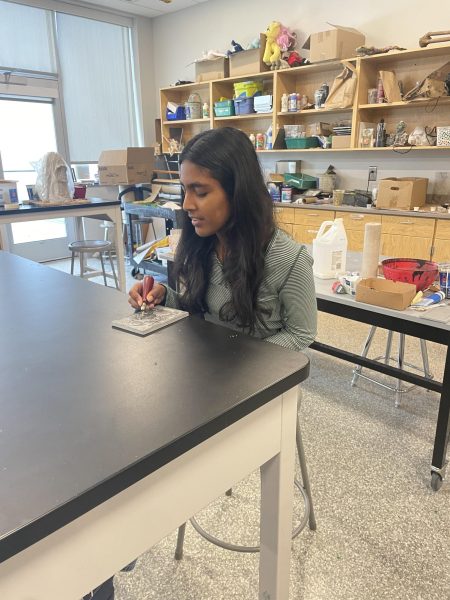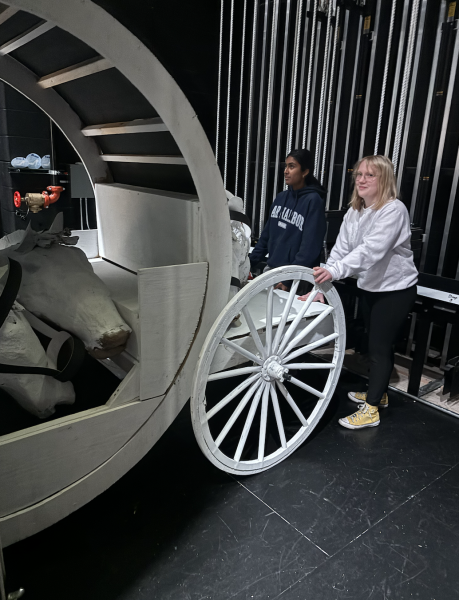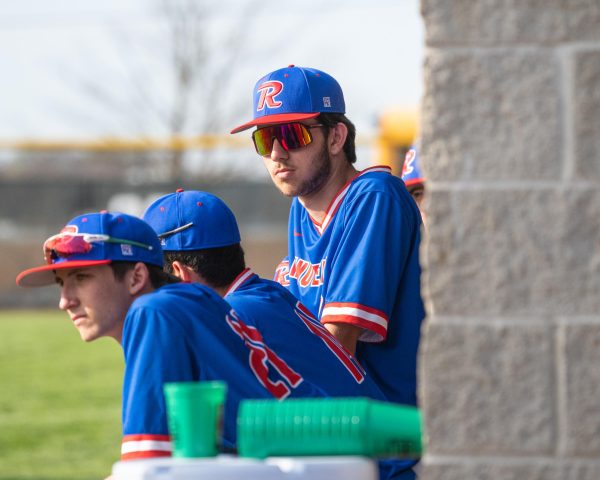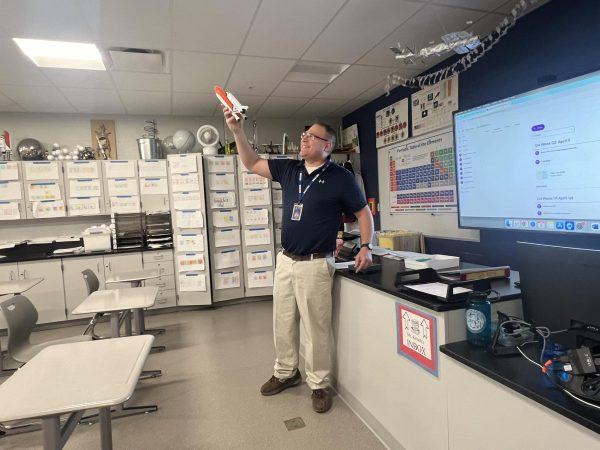Foreign Exchange students learn at RHS
Although students often begin riding the school bus in elementary school, some people in other countries do not have this opportunity. Foreign exchange student Marc Lucas rode his first school bus when he moved from Germany to the United States. An activity that may seem normal to American students may be new and interesting to other students who grew up in a completely different educational environment.
Ma Zongyuan, Yume Kawahara, Sien Yuh and Marc Lucas came to Revere High School this year from various corners of the globe. where education is very different from RHS. Schedules, class size, activities, amount of homework, sports opportunities and college preparation all differ from Revere’s school system.
Chinese foreign exchange student Ma Zongyuan, a junior who goes by Peter, came to America because he wanted to learn about different backgrounds.
“I want[ed] to learn some different things and culture,” Zongyuan said.
At Revere, teachers have helped the students’ transition between their old schools, according to Junior Yume Kawahara, a Japanese foreign exchange student, who believes they are very nice.
“When I couldn’t understand a question, the teacher gave me information or gave it to me on a flash drive,” Kawahara said.
In senior Sien Yuh’s opinion, a student from South Korea, American teachers teach more effectively than teachers in South Korea. Yuh believes American teachers have a different teaching style.
“In America, teachers want to know how the students think, how they understand the subject, but mostly in South Korea teachers throw out information [for students] to just memorize at once,” Yuh said.
According to Yuh, her school in South Korea and RHS has different school hours.
“In South Korea, school starts at eight in the morning but ends at nine o’clock at night,” Yuh said.
Yuh believes it is a large number of school hours; however, it is optional to stay until nine. In South Korea, most students choose to stay after to study. Until a few years ago, students were required to stay at school until nine to study. According to Yuh, only on weekends do students have time for dinner with families.
“South Korea expects [a lot] of the students,” Yuh said.
Yuh noted that some South Korean students learn in a freshman class what some Americans learn in a college course. When Yuh arrived in America, she felt as though she knew everything.
In China, school hours and the class size differs greatly with RHS’s average day and class size. According to Zongyuan, students in China stay in school for almost eleven hours. The class size is also significantly larger than Revere’s class size.
“Fifty [people are] in my class. Seven hundred [people are] in my entire grade,” Zongyuan said.
According to Kawahara, Japan gives a lot of tests and more homework than Revere.
“The tests are easier because junior high school taught me a lot of what we are learning,” Kawahara said.
Kawahara believes her school in Japan was stricter than RHS.
“In Japan, we mustn’t bring our cell phones and talk in class. And we can’t eat anything by the classroom,” Kawahara said.
According to Yuh, South Korea has a big college preparation test, similar to the ACT; however, it differs greatly in Yuh’s opinion.
“Students only have one chance, which is why they study hard,” Yuh said.
According to Yuh, there are three colleges in particular that South Korea values: Seoul University, Yunse and Korea University.
“All of the students aim for those three colleges, which are difficult to get accepted,” Yuh said.
Students in Germany prepare for college differently than those in South Korea, according to Lucas.
“Some people in Germany who graduate from high school make world trips for one year before deciding what colleges to attend,” Lucas said.
South Korea’s class schedule differs greatly from RHS. According to Yuh, they do not get a chance to manage a schedule like Americans do.
“In America, [students] choose what [they] want to take, manage a schedule, but [South Koreans] don’t get a chance, [they] get the same classes for everyone,” Yuh said.
As stated by Yuh, South Koreans have the same classes as each other, and they integrate all math courses into one combined math class.
According to Lucas, homework is different in Germany than at Revere, and Lucas believes school is more important in America than in Germany.
“In America, students get a lot of graded homework, and [they] write often on quizzes and test,” Lucas said.
In Germany, however, Lucas says students get homework, but it doesn’t matter if you do it or not.
“The homework is just practice for your classes,” Lucas said.
The sports Revere offers are also different from the sports in other countries. Lucas liked the differences in Revere’s school system compared to his school in Germany, which did not offer any sports.
“In Germany, the [school] system is like ‘school is school’ and sports are in the evening,” Lucas said.
Another difference that makes RHS stand out among other schools in foreign countries is the school spirit and kindness, according to all of the new foreign exchange students.
Lucas’ experience with sports differed greatly from his experiences in Germany.
“All of the students come to watch [a soccer or football game] and see the people. It’s not like this in Germany. It’s great,” Lucas said.
Yuh also liked how students go to see sports games and support them, which does not happen often in South Korea because of students’ studies.
“American schools offer more activities, because South Koreans don’t have a lot of time to think about other activities other than studying. American schools have more opportunity for clubs and sports,” Yuh said.
There are many differences in education in schools throughout the world according to the students who had the chance to experience two different countries’ schools, both with positive and negative characteristics. Foreign exchange students like Lucas were able to gain experiences like riding to school on a school bus for the first time.
After experiencing the differences in education in a different country than their own, Kawahara, Zongyuan and Lucas plan to leave America and head home by the end of the summer of next year.



